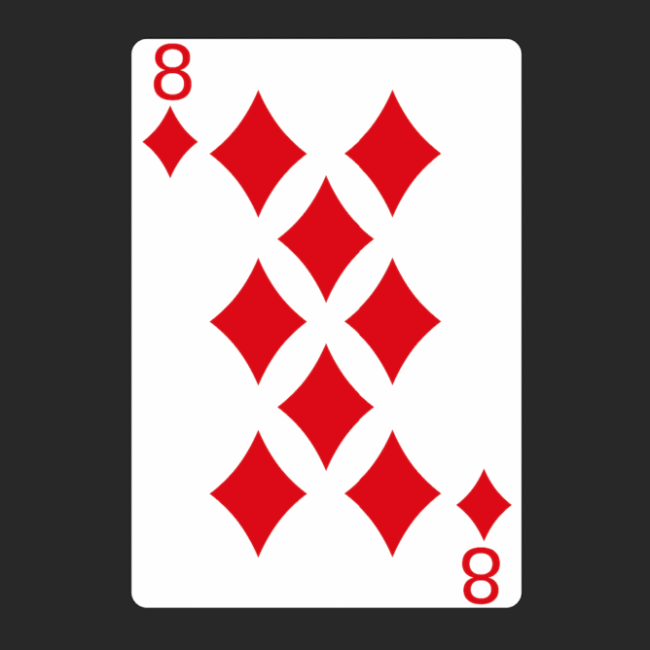It starts with a card, simple and worn from years of shuffling. You sit at the table, fingertips brushing the edges, and glance down to see the 8 of Diamonds smiling back. A solid card, you think, but look closer. Between the familiar red diamonds, a hidden 8 reveals itself in the empty spaces, an invisible shape that was always there, just waiting for you to notice.
Life deals hands in much the same way. Sometimes it is a royal flush, sometimes it is a pitiful pair, and often, it is a messy spread that makes you wonder why you even sat down. Yet, like the hidden 8, the true meaning is rarely printed on the surface. In the Japanese philosophy of Mushin (mind without mind), we are reminded that seeing clearly often means letting go of rigid expectations. A bad hand does not define the player, and neither does a lucky win. What matters is how you move, how you stay flexible even when the cards are bent against you.
There is a quiet beauty here, much like Wabi-Sabi (the appreciation of imperfection). Maybe the best lessons are tucked inside the folds of lost opportunities, the games we walked away from, the risks we dared not take. Scratches, flaws, wrong turns, these are not signs of failure but the brushstrokes of a life lived honestly.
The number 8 itself, when turned sideways, becomes infinity, a perfect loop without beginning or end. It is a reminder of Gaman (endurance and perseverance) — that life is less about grabbing a trophy in one shining moment and more about enduring, smiling through the losses, celebrating small victories, and understanding that even in your lowest hand, you are still in the game.
In modern times, we love the illusion of control. We shuffle, we deal, we calculate odds. Yet, more often than not, we are choosing from hands dealt by invisible forces — algorithms, histories, accidents of birth. Here, Oubaitori (the philosophy of growing at your own pace without comparison) becomes essential. Just because someone else draws an Ace when you draw a 3 does not mean you are losing. It only means your game is different.
If you pause long enough to lift your eyes from your own hand, you might notice what Omoiyari (deep empathy) teaches, that every player carries unseen burdens, that every table is full of quiet battles and invisible hopes. The real game is not just in winning, but in noticing, in caring enough to see beyond the cards into the spaces between.
The hidden 8 on the playing card is not a misprint. It is a wink from the universe, a whispered invitation to look again, to find meaning where none was promised. Some people will never see it. Some will glimpse it once and forget. But those who learn to find it again and again, not just in cards but in life, will realize the best players are not the loudest, nor the luckiest. They are the ones who understand that every hand, even the worst, contains something worth playing for.
When life deals you a strange hand, smile anyway. Somewhere between the shapes you expected and the spaces you ignored, there is always something more.
And if you find yourself losing, just remember, the hidden 8 is still there, quietly reminding you that this is not the end of the game, not by a long shot.
Author’s Note:
If you spotted the hidden 8, congratulations, you already have a better eye than most casinos would like you to. And if you did not see it until now, well, welcome to the real game. Much like life itself, the secret is not in holding better cards, but in noticing the invisible wins hidden in plain sight.
And yes, just like that one time I miscounted my poker chips and still won the round with a pair of threes — proof that a little Mushin and a lot of luck can work wonders.


Leave a Reply